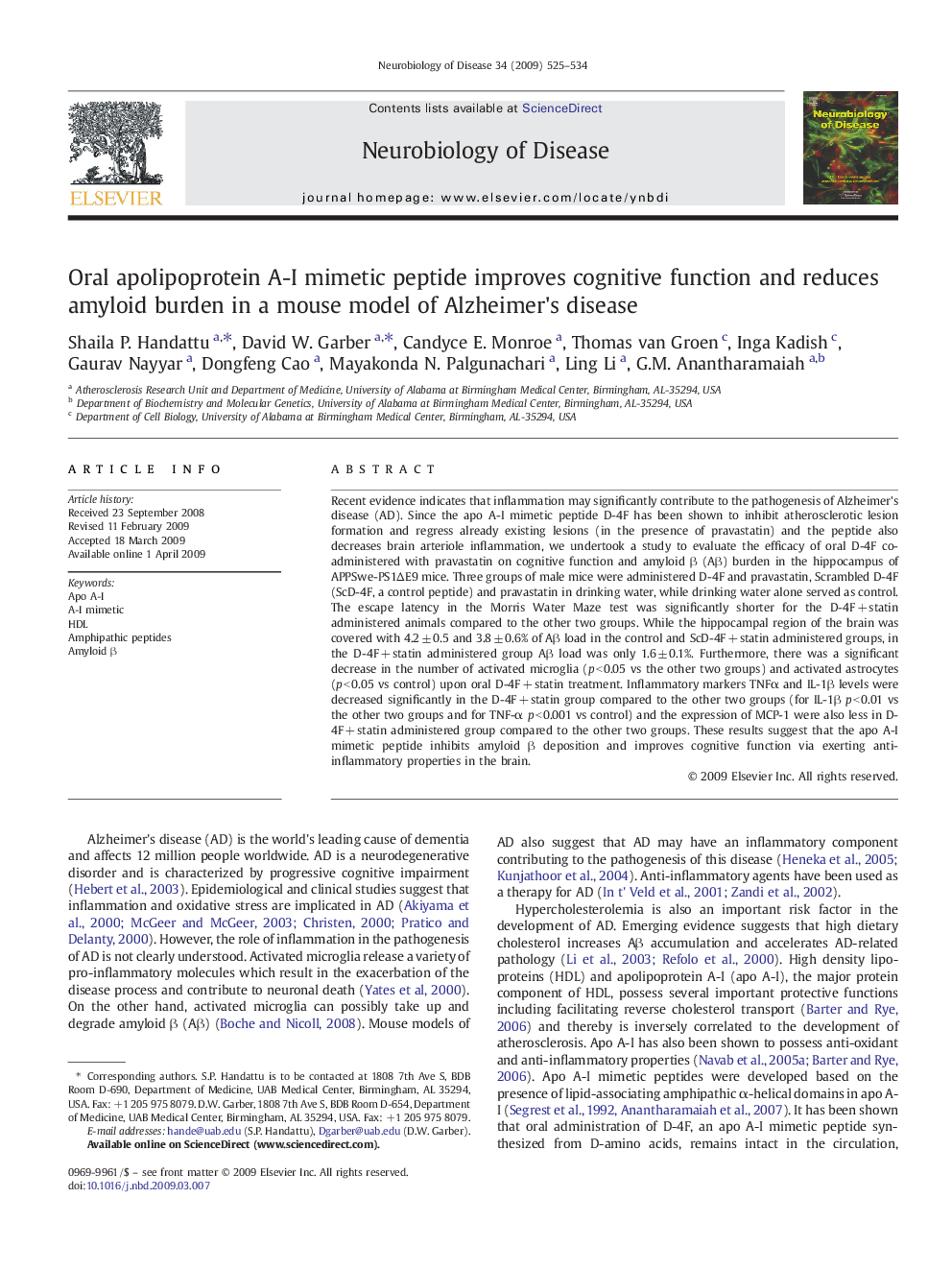| Article ID | Journal | Published Year | Pages | File Type |
|---|---|---|---|---|
| 3070232 | Neurobiology of Disease | 2009 | 10 Pages |
Recent evidence indicates that inflammation may significantly contribute to the pathogenesis of Alzheimer's disease (AD). Since the apo A-I mimetic peptide D-4F has been shown to inhibit atherosclerotic lesion formation and regress already existing lesions (in the presence of pravastatin) and the peptide also decreases brain arteriole inflammation, we undertook a study to evaluate the efficacy of oral D-4F co-administered with pravastatin on cognitive function and amyloid β (Aβ) burden in the hippocampus of APPSwe-PS1ΔE9 mice. Three groups of male mice were administered D-4F and pravastatin, Scrambled D-4F (ScD-4F, a control peptide) and pravastatin in drinking water, while drinking water alone served as control. The escape latency in the Morris Water Maze test was significantly shorter for the D-4F + statin administered animals compared to the other two groups. While the hippocampal region of the brain was covered with 4.2 ± 0.5 and 3.8 ± 0.6% of Aβ load in the control and ScD-4F + statin administered groups, in the D-4F + statin administered group Aβ load was only 1.6 ± 0.1%. Furthermore, there was a significant decrease in the number of activated microglia (p < 0.05 vs the other two groups) and activated astrocytes (p < 0.05 vs control) upon oral D-4F + statin treatment. Inflammatory markers TNFα and IL-1β levels were decreased significantly in the D-4F + statin group compared to the other two groups (for IL-1β p < 0.01 vs the other two groups and for TNF-α p < 0.001 vs control) and the expression of MCP-1 were also less in D-4F + statin administered group compared to the other two groups. These results suggest that the apo A-I mimetic peptide inhibits amyloid β deposition and improves cognitive function via exerting anti-inflammatory properties in the brain.
